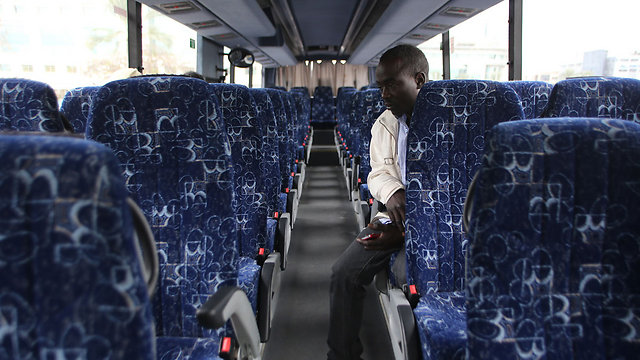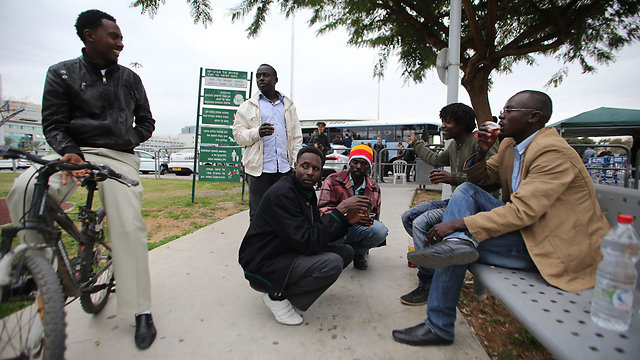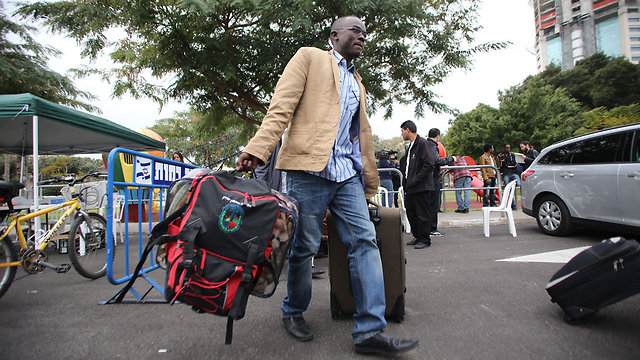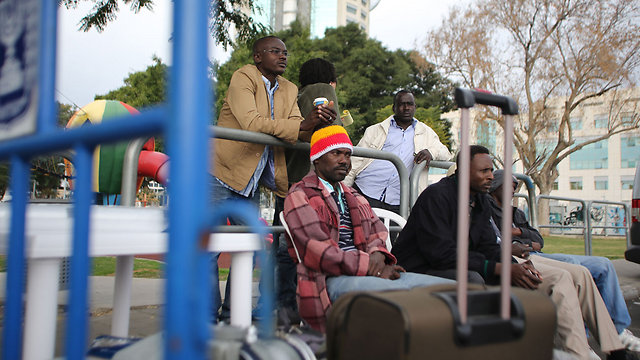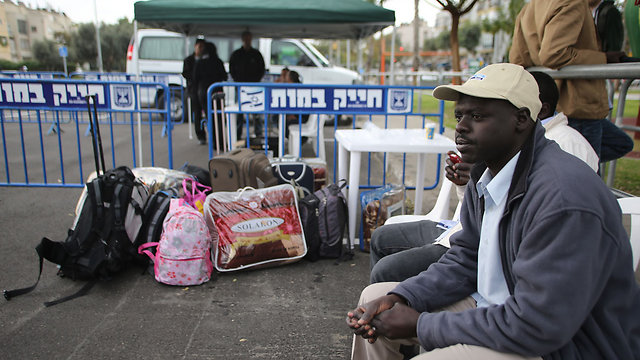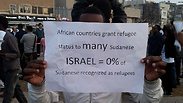
"They told us to report here. I don’t know where I'm going; I'm scared. I haven't done anything - why are they putting me in jail?" asked Agus from Eritrea.
The total was only a small proportion of the 60 who received orders to gather at the collection point. The few who did turn out were apprehensive.
Related stories:
- Migrants abandon Holot 'open' detention facility in protest
"I don’t know where we’re going, whether it'll be good or bad, but they told me to come so I came," said Salim from Sudan. "I came to Israel from my own country, which is in shambles. I can’t go back there, so I'm doing what they tell me to."
In tears, Mohammed from Darfur related the sequence of events that led him to get on the bus. "I came here because we need help. I've been here six years, I arrived from Egypt injured, and in Israel they treated me. But now we have problems. I fled the war in my own country because I didn’t want to be a soldier sent to murder children from his own family."
Since it opened about a month ago, the Holot detention center has held about 500 asylum seekers who were transferred from Saharonim prison. On Sunday, the first group of asylum seekers removed from Israel's cities was set to join them, from among the 1,800 who received transfer orders. New government policy dictates that thousands of asylum seekers will be removed to Holot in the coming months. The center can hold approximately 3,300 people.
Two more groups of asylum seekers are due to be transported to Holot on Tuesday and Thursday. The Population and Immigration Authority, which is providing the transportation from Tel Aviv, says men with families have not been given transfer orders. But human rights organizations say they have spoken to asylum seekers who contradict that claim.
"We are going to prison, and they told us we have to go," said Sadik. "I came to Israel several years ago from Sudan. They stopped me not long ago and told me I only had a visa for a month, which had expired, and s I had to come here I understand that Holot is an open prison, and we'll see what that means when we get there."
"This is a case of targeted action to deprive people of their freedom," said Yigal Shtayim, one of the Israeli activists who turned up to support the asylum seekers. "It was my duty as a citizen to witness this terrible violation of human rights. Holot prison, which I visit every weekend, is a terrible place. It is psychological torture – the gate is open but there is nowhere to go. It is designed to drive the refugees mad, so that they give up and return to their home nations, something that is impossible."














